Reading is integral to the lives of all students at Pao School. Each semester, the libraries on the school's three different campuses provide a rich variety of activities during Book Week to whet students' appetite for reading.
Award-winning Author Inspirational Speaker Television Host Ying has authored over 20 books of mutiple genres. She is passionate about showcasing Chinese History and culture, as well as promoting the importance of healthy eating and living. |
Zhang Ying |
Andy Wright is a professional storyteller. He has been telling stories around the world for the past two decades including Australia, New Zealand, Europe, and South America. |
Andy Wright |
Author, Correspondent, PAO Parent Rob Schmitz is the Shanghai correspondent for National Pubilc Radio. Previously he was the China correspondent for NPR's Marketplace. He has won two national Edward R. Murrow Awards and an award from the Education Writers Assiociation for his reporting on China. Street of Eternal Happiness is his first book published in 2016. |
Rob Schmitz |
Author Screenwriter As a member of Shanghai Writers' Assiociation, she published the Children's History Series, "Tang Xiao Tuan" in 2015. |
Gu Qingping |
During Book Week, literary luminaries from China and overseas arrived at the Primary School to engage with our students.
Zhang Ying, an award-winning author and speaker, gave students tips on how to write more effectively and told them about how she spent 13 years writing one book.
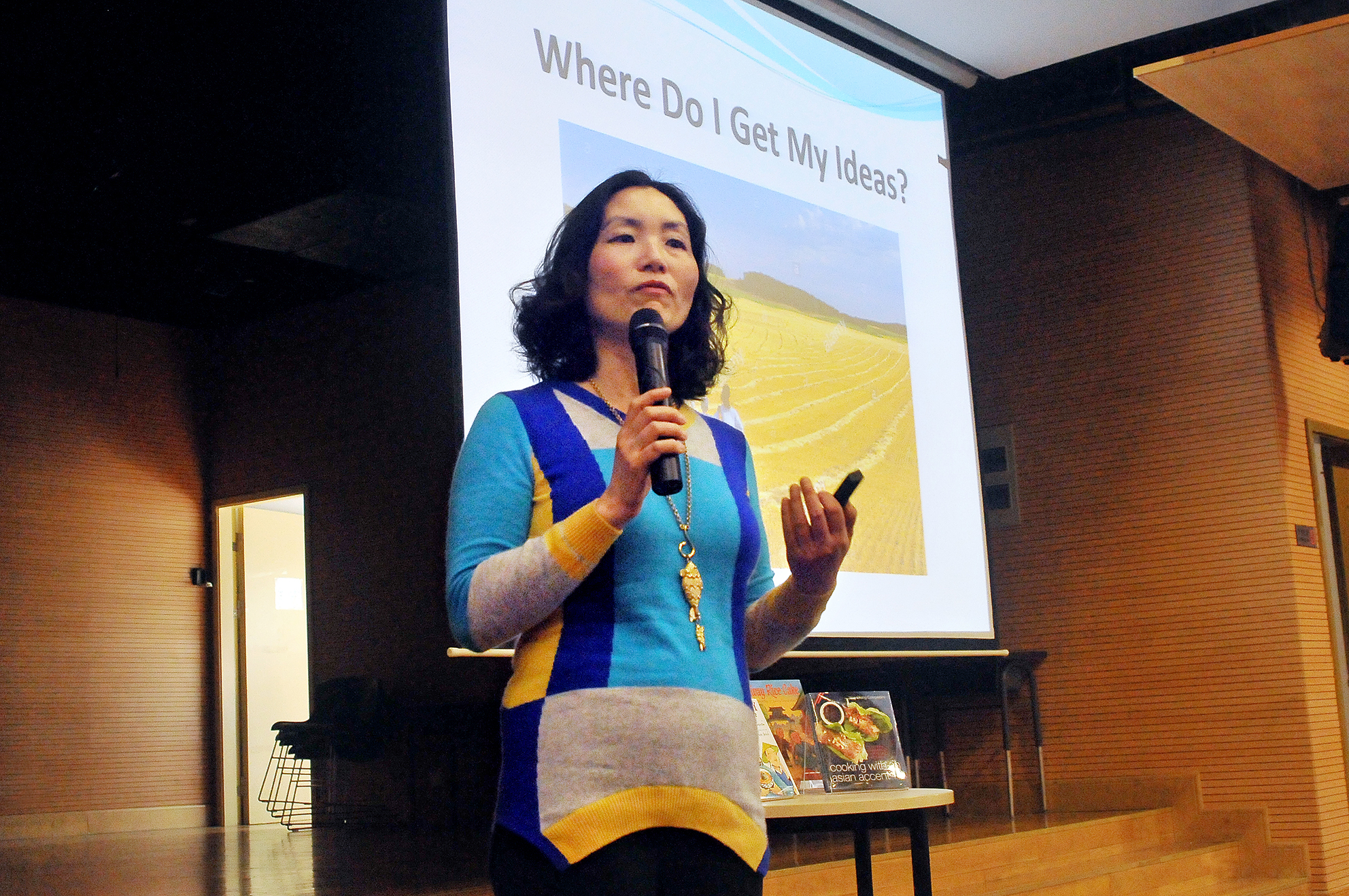
World-class storyteller Andy Wright dazzled the students with a traditional dance of indigenous New Zealand peoples, helping them to better understand New Zealand folklore.

Meanwhile, aspiring Year 5 students in the audience listened intently to journalist Rob Schmitz, author of Street of Eternal Happiness.

Finally, Chinese writer Gu Qingping thrilled students with her vivid descriptions of stories from China's rich history.
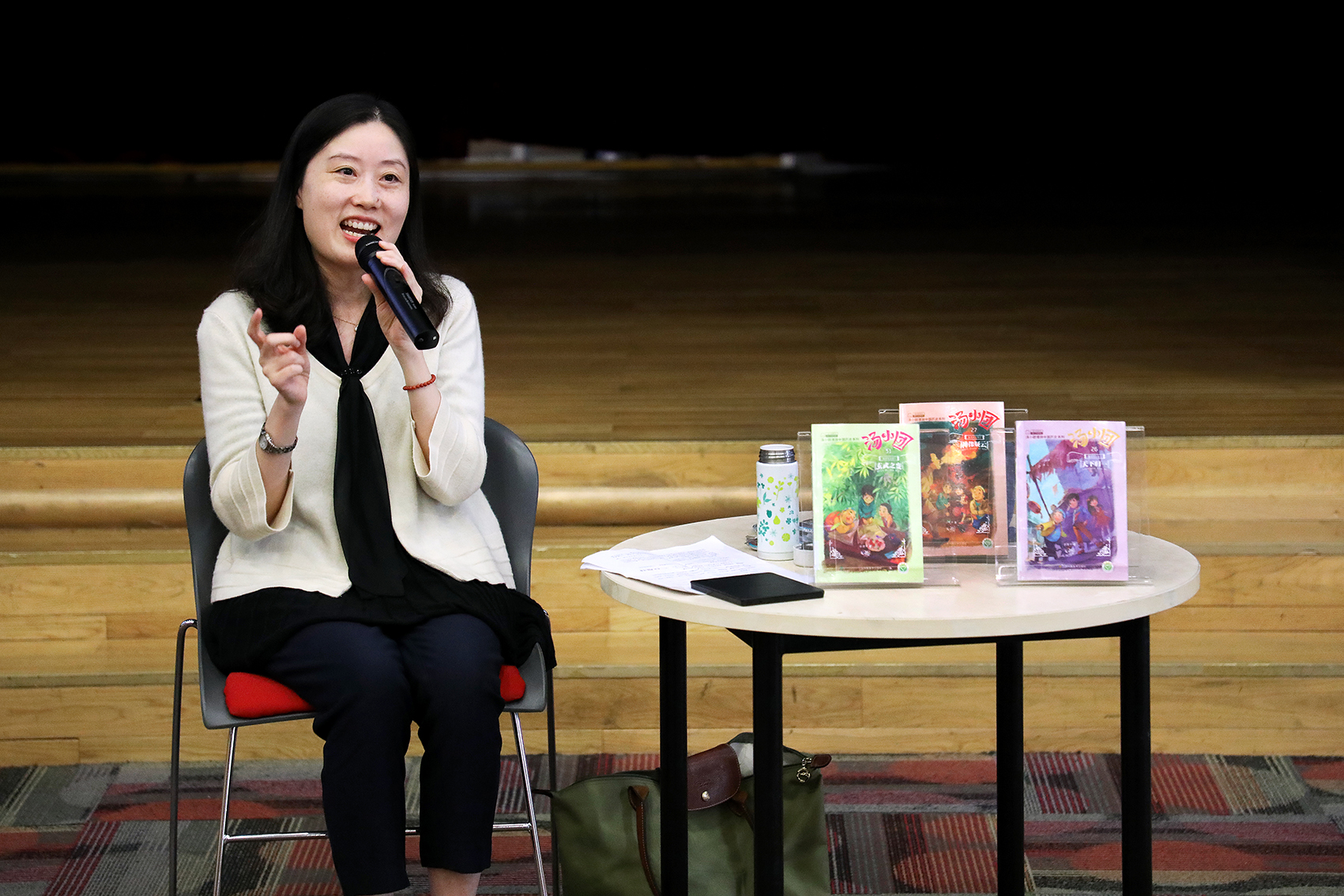
Reading enthusiasts also enjoyed the traditional Book Week activities such as the treasure hunt and the chance to dress up. For the treasure hunt, teachers carefully select 40 books and affix to them attractive ribbons and Book Week logos. They then place the books in "easy to find" places around campus - playgrounds and corridors - at different times of the day. When someone finds a book, that student can first take the book home and read it, and then later share it other students. To symbolize the concept of "reading taking root," students in the upper years planted "reading trees" in the shape of leaves. By helping students to discover the joy of reading, we can ensure that they continue to be proactive readers in the future.


| 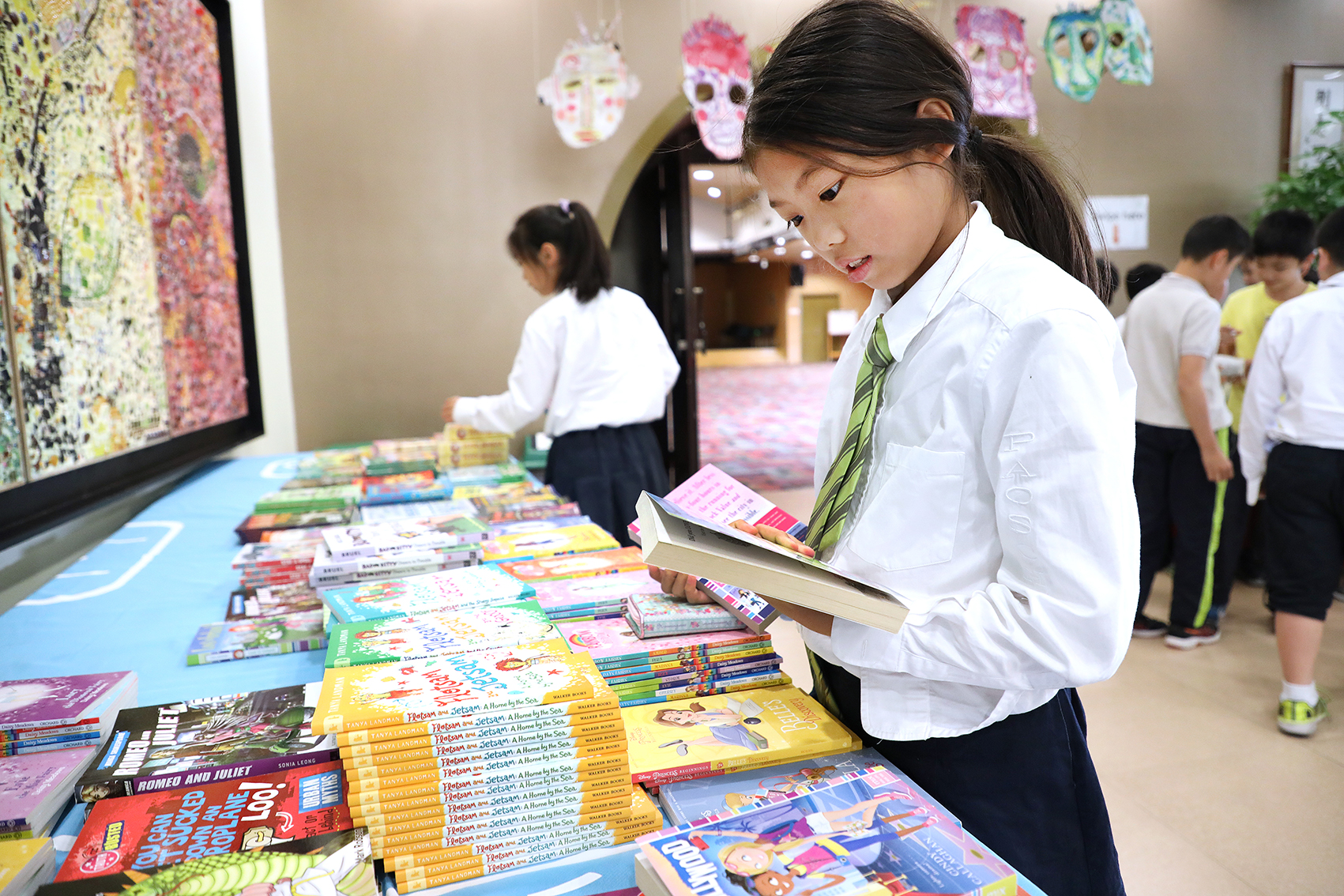 |
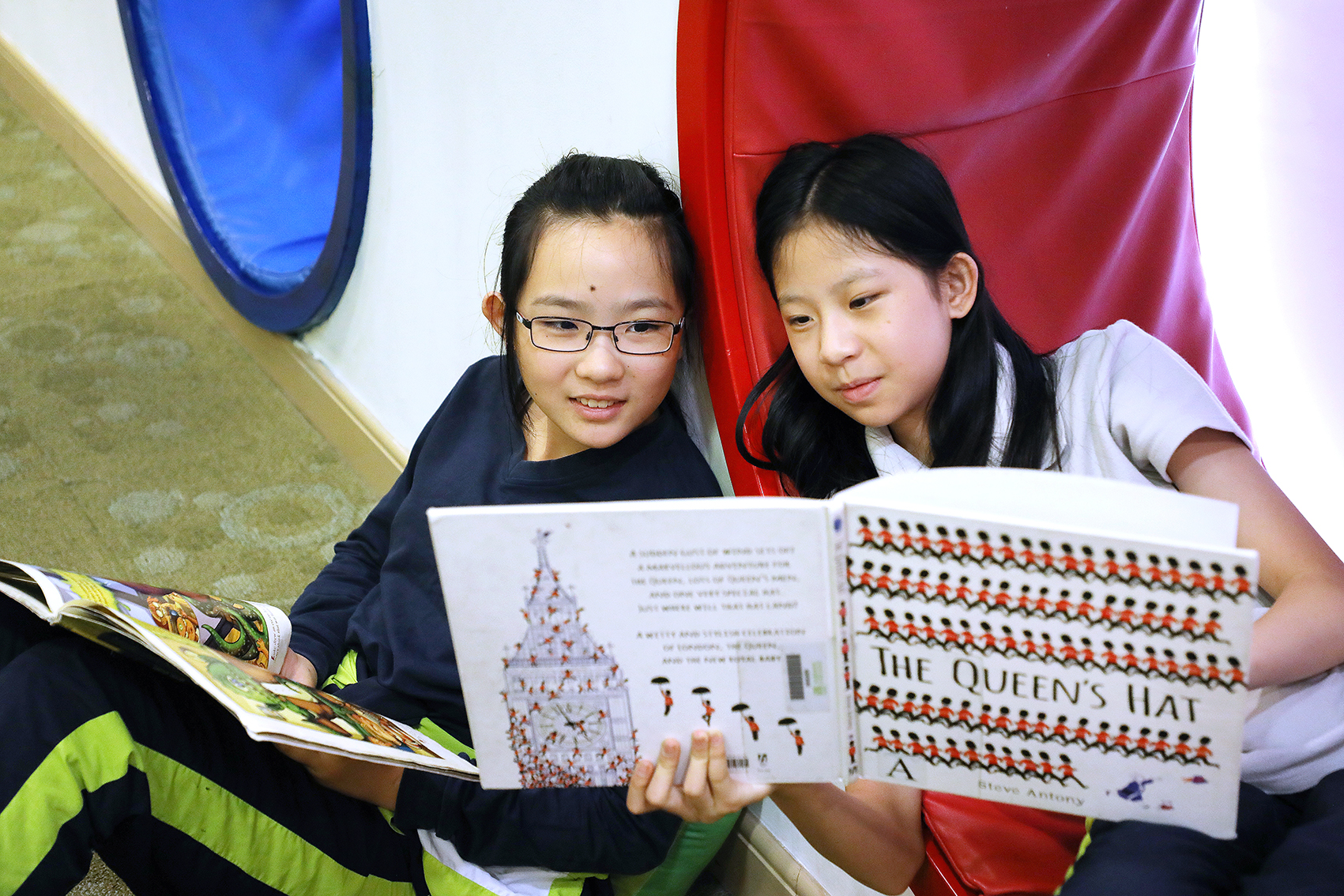 | |
The visit of Canadian cartoonist, director and educator Matt Smith highlighted Book Week for Middle School students as he wowed students with his comic and animator skills.

It doesn't take much to draw a cartoon. Even a stickman on paper is already recognized all over the world as a 'person'. By simply adding a sword and shield, the stickman becomes a knight, and so a character has been created. You can also try to create cartoon characters by focusing on contrasting forms and traits, such as slim or fat, short or tall, square or round… Cartoons are awesome. I can even draw sound, smell or motion. All I need for example is just a 'Pow!' or 'Wuush!'.
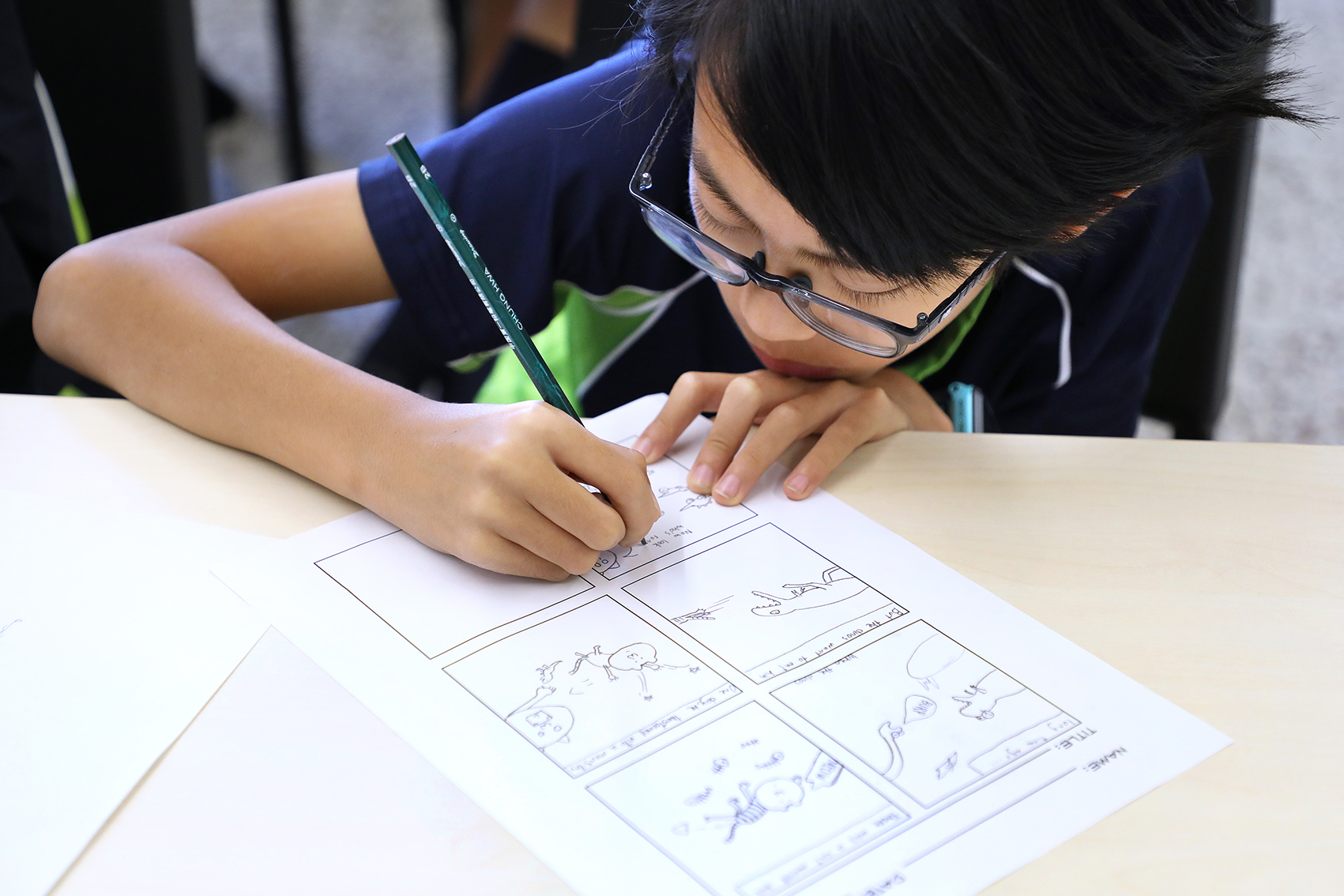
Librarian Ms. Brenda Rupp said, “Students had a chance to break from a regular day of study and enjoy using their creative brains to draw and write stories. With his workshop on drawing comics, all our students were cartoonists for a day.”
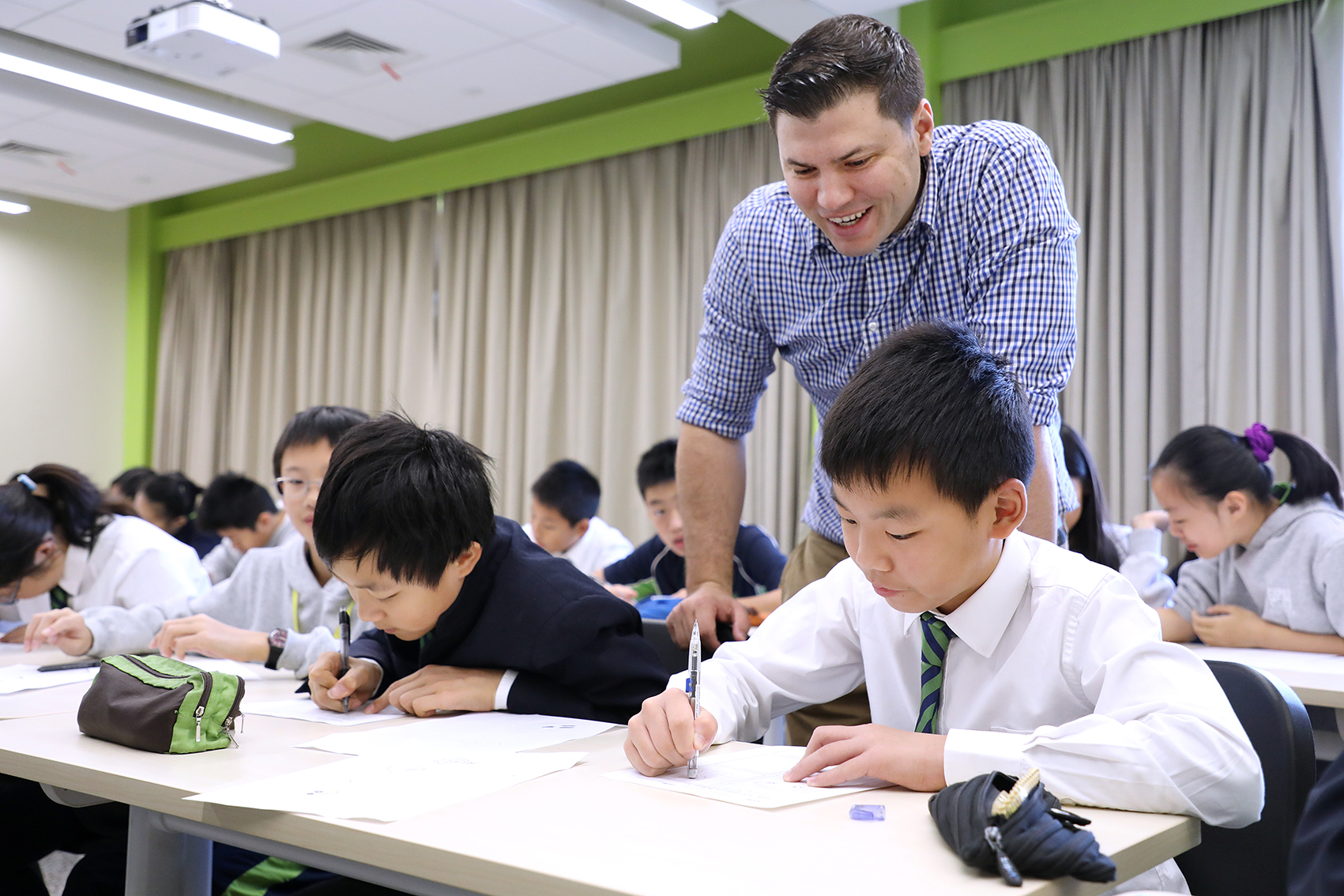
Cartoonist, Director and Educator Matt Smith shared his comic and animator skills with Middle School students
Students had a great time outside the classroom too. At the Book Swap they brought books which they exchanged for tickets that could be in turn exchanged for other books. They made posters for a contest themed “Reading Cultivates Compassion" and they even tried their hand at a Read-A-Thon: Each day, students read a new book by a female author, a short story collection or a non-fiction book.
|  |

The library treasure hunt at the High School is a fun way for students to learn how to use library resources more effectively, especially how the library's collections are catalogued, its online system and the Dewey Decimal system.
The library also invited students and teachers to join the "Quiet Reading" activities in the tutoring session every Tuesday in October. Students could borrow a book from the library, bring a book from home, or even download an e-book on a Kindle or iPad and read it during quiet reading time.

Prof. Zhou Shengwei talked to students about classical Chinese poetry
One of the most interesting activities during Library Month involved inviting Chinese and foreign writers to visit Pao School and chat with students. Prof. Zhou Shengwei from East China Normal University captivated students with a vivid lecture about classical Chinese poetry. Professor Zhou presented the complex poetry in a simple and humorous manner that highlighted his many original ideas about the works as well as his appreciation for them. He encouraged students to make reading a daily habit. "Reading is a habit. It is something that you do daily for yourself, not for wealth accumulation or personal success." he said.
In an interview after the lecture, Professor Zhou Shengwei talked about what's necessary for students to be creative in a literary sense: First, students must be in the habit of writing regularly, while they also should have relevant life experience and professional training. He believes that poetry is an artistic expression of life, the resonance of individual experience and group emotion. Poetry is sometimes aligned with society and at other times in opposition, but it always maintains a relationship with society and others.

Professor Zhou Shengwei answered students' questions
In his view, there are two elements of poetry writing: one is the creative spark, which can be stimulated by reading good works of poetry or one's own life experiences. It's not enough to simply want to create poetry, he says. You need to have relevant experience to draw from; you can't rush to create immediately either; you must first embody, deepen and refine your emotional experience. Creativity will flow only when you are in touch with your own life experiences and emotions, which will stimulate you to create works that will touch others.
The second element of poetry writing is professional quality, which is built up over time through systematically understanding poetry's structure, style, rhyme, etc. Therefore, when writing poetry, the author should repeatedly ask him or herself questions in an effort to dig deep into the creative impulse in our imaginations. Ms. Grace Ma, Head Librarian, commented, “Prof. Zhou’s breadth of knowledge filled the students and teachers with admiration. Students came away with a deeper understanding for the poetry along with their current Chinese studies during the class. He inspired the students to use their analytical thinking to learn and do more academic research.”
Ms. Grace Ma, Head Librarian, commented, “Prof. Zhou’s breadth of knowledge filled the students and teachers with admiration. Students came away with a deeper understanding for the poetry along with their current Chinese studies during the class. He inspired the students to use their analytical thinking to learn and do more academic research.”

Cartoonist, Director and Educator Matt Smith also shared his comic and animator skills with High School students.
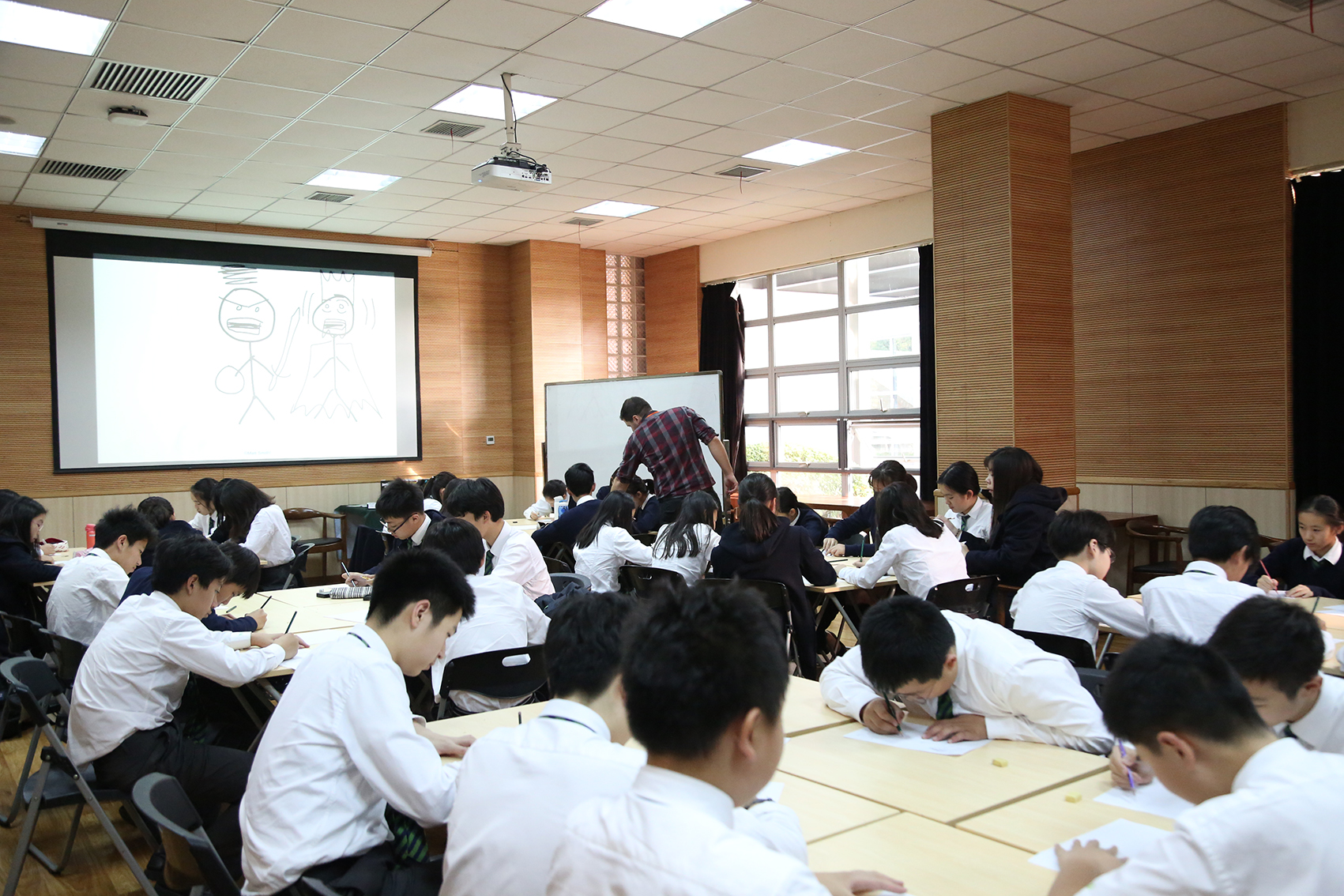
After listening to Mr. Smith’s presentation on the High School campus, English teachers, Sarah and Jeffrey both agree that this refreshing storytelling style helped their students to improve their English listening and creative writing. Matt Smith showed us that English learning could be a lot of fun, cultivating students' ability to express themselves and stimulating their imaginations. It's not just about preparing for exams.
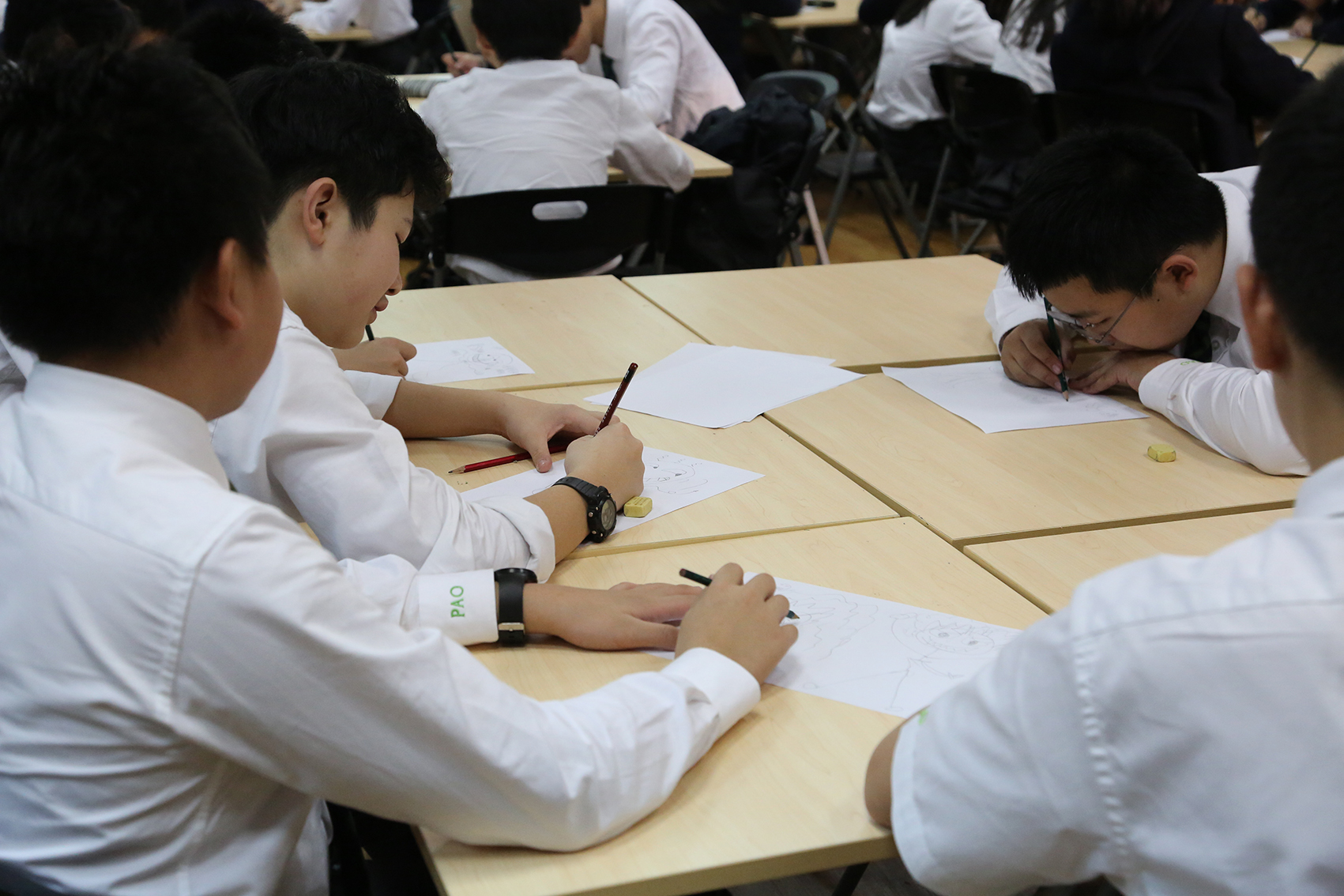
The celebrated children's author Dr. Seuss once wrote, "The more you read, the more things you know. The more that you learn, the more places you'll go." These are words of wisdom we should follow: Indeed, reading is ultimately about the pursuit of knowledge, leading to greater self-awareness and understanding of the wider world.